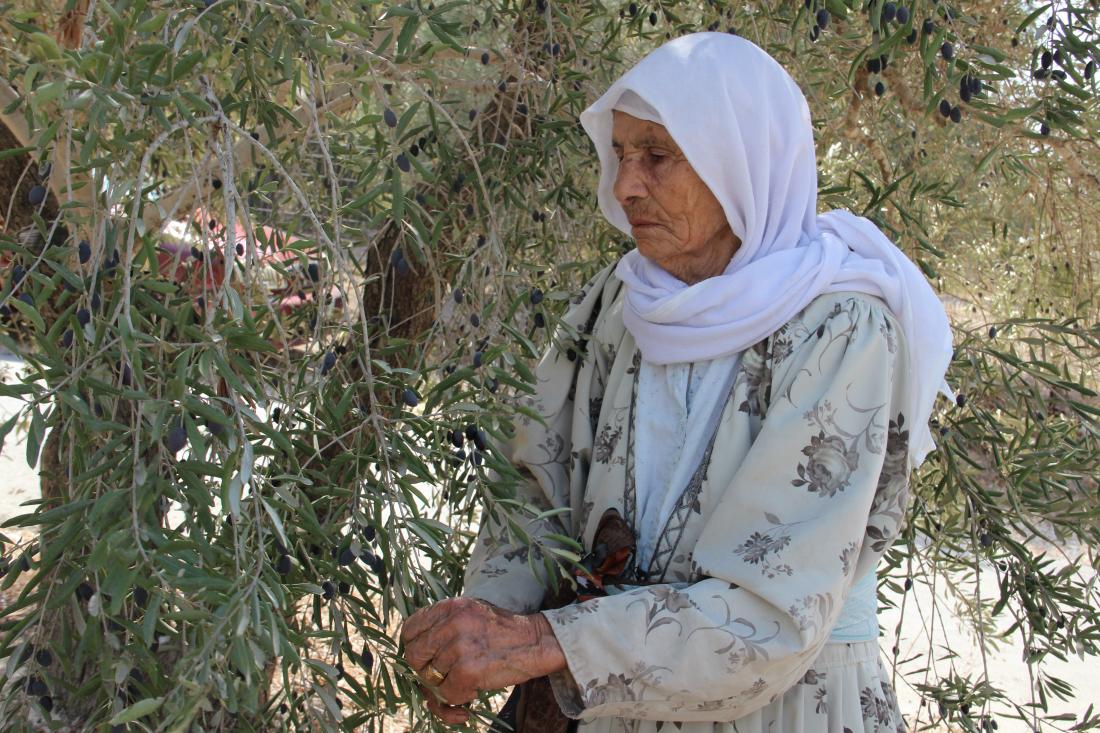MedSNAIL in Palestine: Olive Tree, a history of Ancestors and the future for generations

The MedSNAIL team in Palestine, during a recent technical visit to its pilot area, collected the testimonies of some farmers coinciding with the end of the olive season, a crop closely linked to the agri-food heritage of the territory.
Live testimonies:
Mrs. Latifa Obeid who is in her eighties, says she has been used to wake up every morning since she was a little girl until these days. Where she was waking up the family with a great joy that overwhelms everyone to start the first day of the olive harvest season, and heading to the fields where they find joy and pleasure. Alongside to the fact that olive trees are considered one of the most important essentials to the economy of the Palestinian, despite the significant transformations that have taken place over the past years, Latifa added: "Olive is a blessing and we rely on it in our lives". She was able to express herself and her emotions with these simple words, while the wrinkles and signs of time imposing her forehead and hands, but she remained firm.

Latifa is picking olive trees as she used to do every season since she was young in Anza village- west bank
What happens in Anza village is similar to what happens in all Palestinian villages and towns, people practice marvelous traditions and rituals in the olive season, the pre – season preparation takes off earlier with taking care of the land and the tree. Then people collect their tools such as: “covers” which are made of sewed empty gunny bags and it is stitched together to put them below the tree branches and the trunk, to ensure that olives do not fall on the ground and make it easier to collect later.
Latifa’s with her children and grandchildren are huddled around among the Olive trees in a picture that sums up many words. She sustains saying: “I raised my children to love and belong to their land since childhood, they used to lay down their school bags at home, and they used to follow us to the field to provide help until evening.” Which is what her entire generation does.

Latifas grandchildren helping her with olive harvesting using harmless tools.
In order to know the ripe olives fruit, she explains that continues observations depending on experience and knowledge, the color, shape and size of olives are important to determine the season of picking, which usually begins in the second half of October and extends until December. Latifa says: “We innately know when olives are ready to be picked.” She adds, "My soul is attached to the land and cultivation, sometimes I go with my children to Jenin to plant trees and they help me."
This document has been produced with the financial assistance of the European Union under the ENI CBC Mediterranean Sea Basin Programme. The contents of this document are the sole responsibility of Rural Women’s Development Society – RWDS and can under no circumstances be regarded as reflecting the position of the European Union or the Programme management structures.







